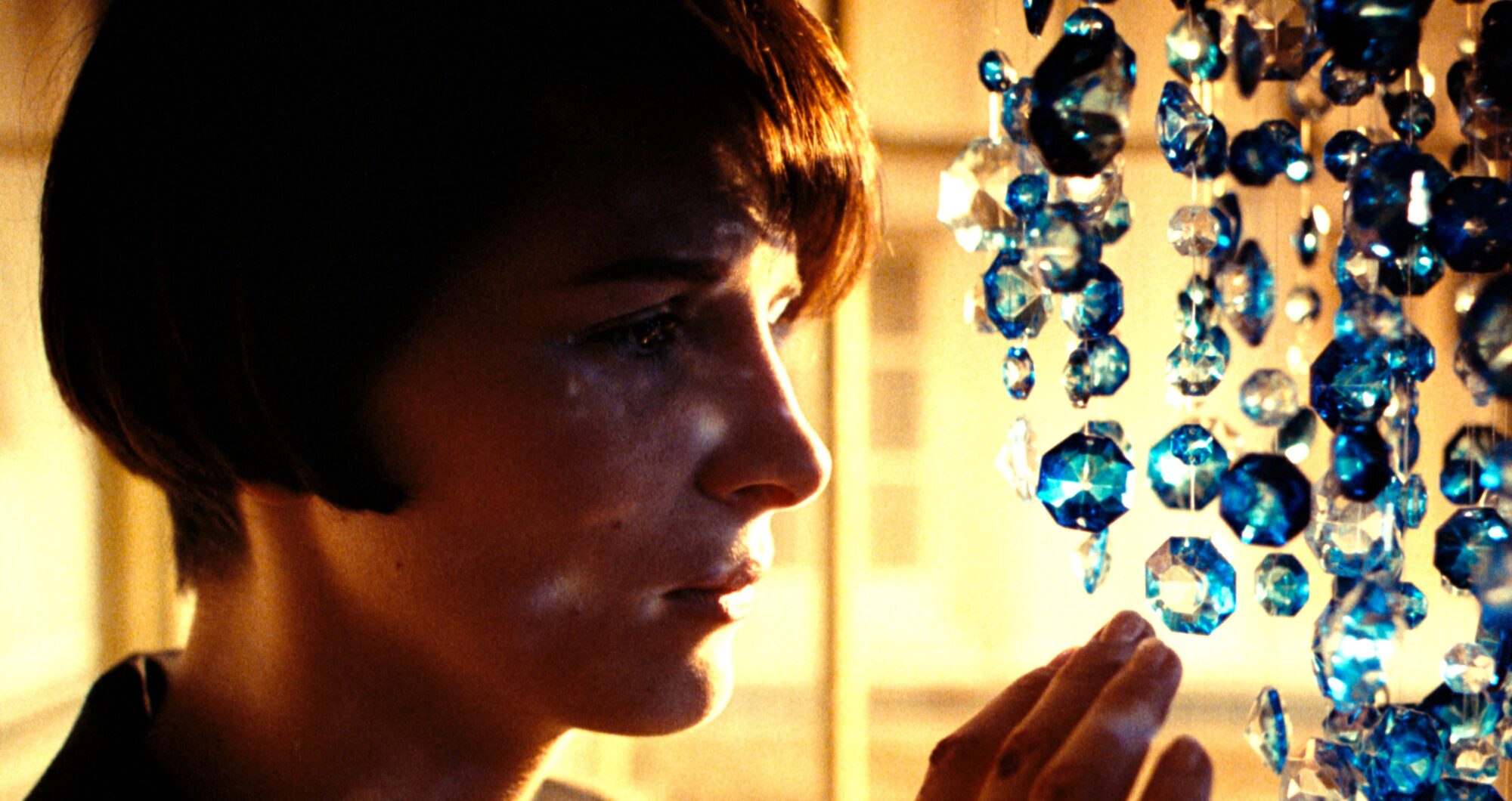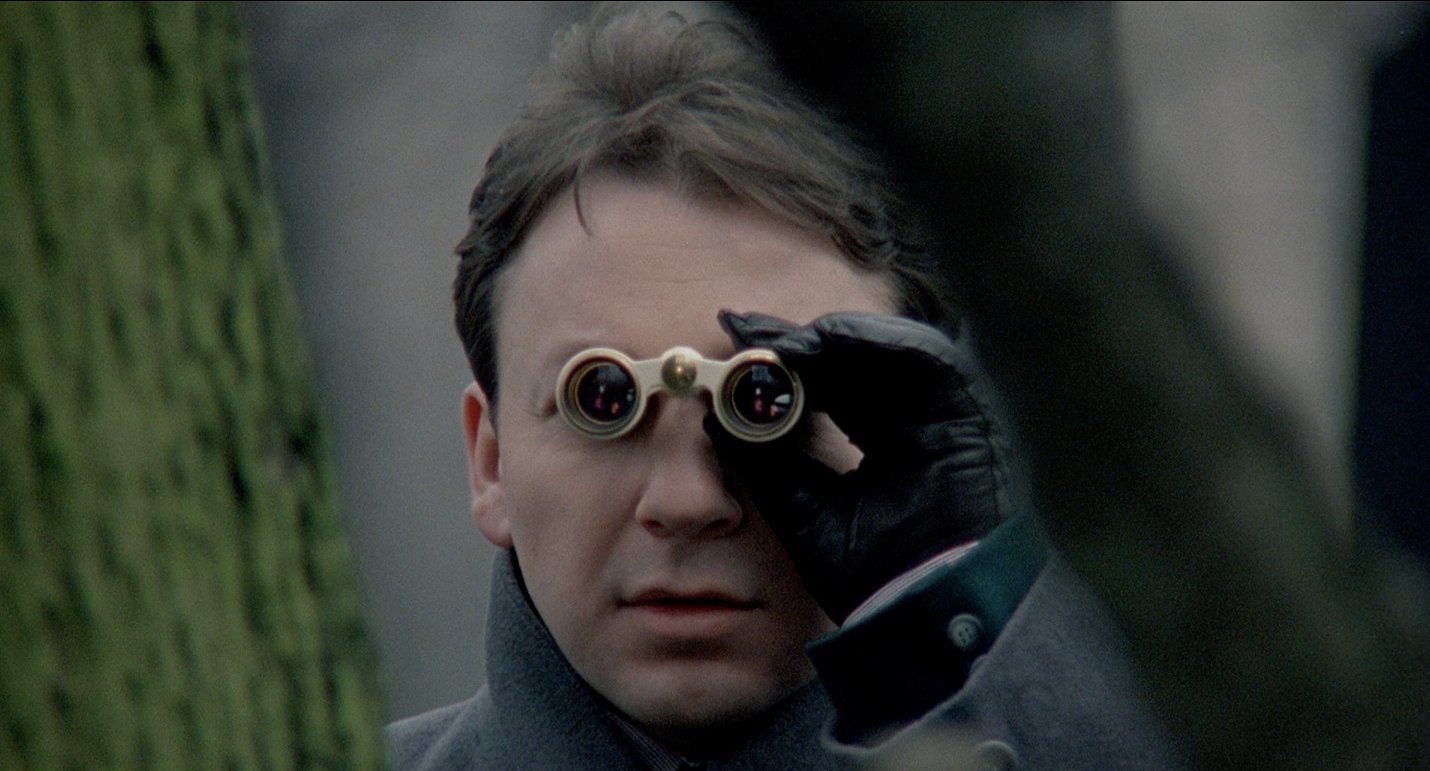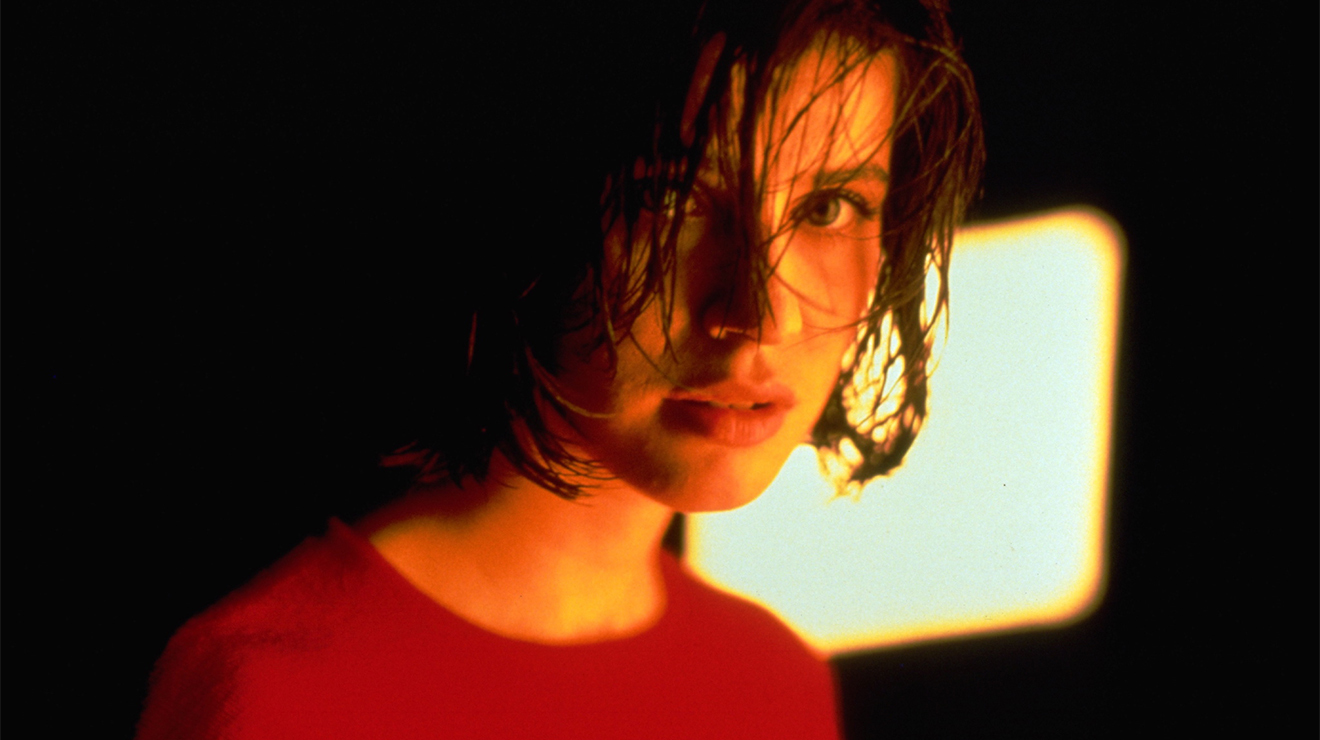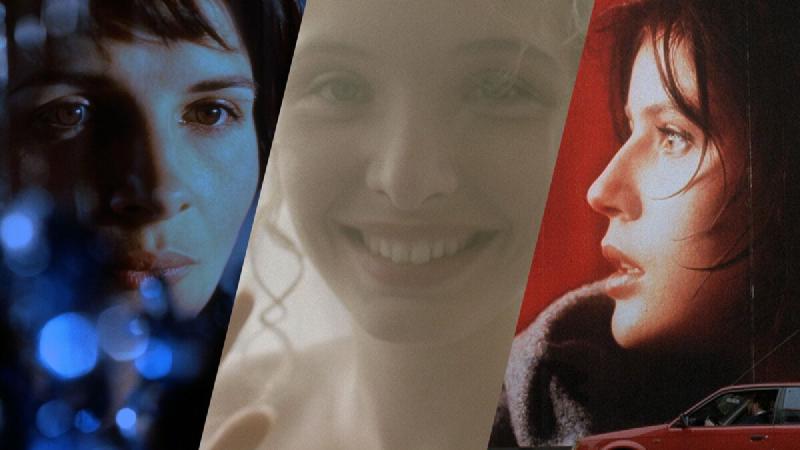The Three Colours trilogy by Krzysztof Kieślowski is a series of loosely interconnected films exploring similar, but distinct ideas. Each film has its own personality, with its own themes, characters, and of course, representative color. Following the colors of the French flag, each color represents a different political ideal in the motto of the French Republic — liberty, equality, and fraternity. They can be watched on their own, but when viewed collectively, gain new meaning, as they reveal just a little bit more about the director and his overarching goal.
Blue is the first in the series. It follows a woman, Julie, as she tries to navigate the world after losing her husband and daughter in a car accident. The theme of liberty is explored here as she’s no longer tied down to her old life. Without her husband and daughter around, she utilizes this freedom to try to forget about her past. She internalizes her feelings and isolates herself in order to avoid facing her emotions. Although we see her cry shortly after finding out the news, it’s a long time before she sheds tears again.
She sells most of her and her family’s belongings, puts her house up for sale, and moves to an apartment in Paris without telling anyone. The only thing she keeps from her old life is a blue bead mobile that was hanging in her daughter’s room. Try as she might to run away from her past, it keeps coming back to her in various serendipitous ways. Eventually she has to come to the realization that isolation is not the best path forward, avoiding love isn’t doing her any favors. The past can’t simply be ignored, it doesn’t make the grief disappear.

White also begins with the main character, in this case a man named Karol, separating from his partner. In this case, he’s being divorced by his soon to be ex-wife, Dominique. Julie actually walks into this legal proceeding during Blue, although it’s not a central part of the story, it gives us a glimpse into how these stories are subtly interwoven.
Karol’s quest for equality starts in this courtroom, with deep humiliation caused by the divorce. He’s Polish while his ex-wife was French, and he had to communicate through a translator. At one point, the judge refuses to hear more of Karol’s testimony, which he suspects is a result of him not being fluent in French. Additionally, he’s lost access to his bank account, his passport, his dignity, and the salon he and Dominique jointly owned. Karol is eventually able to return home to Poland with the help of another Polish man, Mikołaj, whom he meets at a metro station, and slowly begins to work out his revenge plot. In contrast to Julie’s solitary turmoil, Karol externalizes his struggles. He works to become wealthy (through seemingly shady methods), learns French, and forms connections with various people, remaining close to Mikołaj.

Within the trilogy, this film stands out a bit. It’s comedic and fast paced, making the tone much less serious than the other two. Karol can be a bit hard to relate to or have sympathy for at points, and he makes many questionable decisions. You get the sense that he’s put himself on a path towards self-destruction, but in the end it all kind of works out. Still an enjoyable film and an important part of the trilogy, but on its own it’s not as powerful as the next one.
Red is the final movie in the trilogy, and Kieślowski’s final film in general. Although he stated this before the film’s release, it became true after his passing in 1996, two years after its release. It’s my favorite in the trilogy, and I feel that I’ll only get more and more out of it with repeat viewings.
Unlike the other two, instead of predominantly following one character, this film follows the bond formed by two people at very different stages of their lives. Valentine, a part-time model studying at University of Geneva, and Joseph Kern, a retired judge. They meet after Valentine accidentally runs over his dog, and tracks him down. He’s cold and uncaring towards the dog, telling Valentine she’s hers now. Somehow through this encounter, through this dog, they see each other more and more.
Kern spends his time listening in on his neighbor’s phone calls using receivers he has set up in his house. He listens but never does anything with the information he learns. Kern can be seen as a stand-in for Kieślowski, or even God, maybe both. Through the windows in his house he can see the houses of all the neighbors he’s listening to, you get the sense that he’s in control. Things start to happen that make you wonder if he intentionally planned them out, much the same way a film director plans out all the events in the story.

Valentine is shocked upon discovering Kern’s secret. She insists that what he’s doing is unethical and that he should come clean. He believes what he’s doing is harmless and not going to affect the outcome of anything. Kern is amused by Valentine’s idealism and sympathy, inviting her to expose his secret to his neighbors. She makes an attempt, but ultimately decides it might actually do more harm than good. The pair grow closer and closer, learning from each other and confiding their secrets to each other. In another life, at a different time, maybe they would’ve been more than friends.
What this film makes clear is that there’s something inherently special in chance encounters. The probability of two people meeting, even if they live across the street from each other in a big city, can be incredibly small. Yet, it happens all the time. Strangers meet and perhaps nothing meaningful happens, but sometimes the events that transpire can be absolutely life changing. In a way, I feel that I can connect this to Mechanisms Common to Disparate Phenomena 59, these seemingly random events form a sort of pattern eventually. There’s a beauty, even a magic, to these random moments. Like Julie’s past repeatedly coming back as a result of other people’s determination and a bit of luck, Karol meeting Mikołaj and getting back home to pursue his goals, and so many of the events that transpired in Red, these incidents, no matter how big or small, can cascade into something bigger.
The way that Red concludes is absolutely masterful. It’s the perfect finale to not just the film, but the trilogy as a whole. All the threads we’ve been following intersect through one more fortuitous event. There’s a lot that’s still sort of left untold or unexplored. It feels like as viewers we dropped out of these people’s lives as suddenly as we dropped in. But what happens next isn’t what matters, what matters is that it happened at all.
